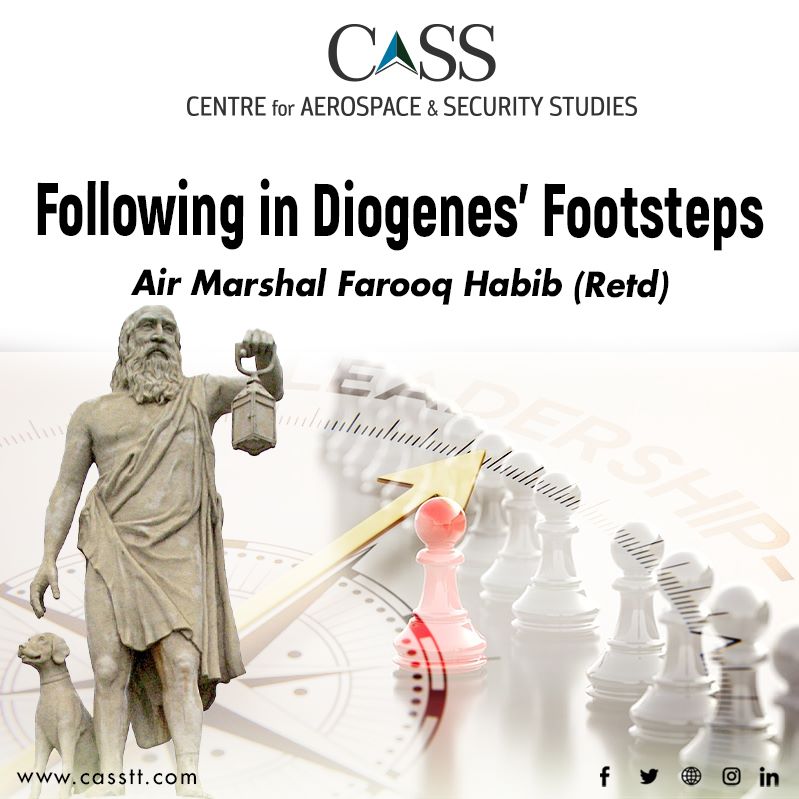Speaking recently at the United Nations General Assembly on the ‘priorities for 2023’, the UN Secretary General António Guterres, made a passionate speech about the existential challenges, currently facing humanity, including deadly conflicts, extreme poverty, widening economic inequalities, climate crisis, etc. in relation to the capacity of present-day leadership. He concluded that politicians and decision-makers across the world suffer from the lack of strategic visioning and long-term thinking, hampering their abilities to handle these challenges. The Secretary General lamented the tendency of ‘preference for the present’ and ‘near-term thinking’ in the leaders, which he said was ‘irresponsible’ and ‘immoral’.
Mr Guterres has a reputation of being both, articulate and vocal about the issues of human rights. His briefing at the General Assembly was a stark reminder that statesmanship everywhere in the world was becoming more elusive than ever.
The speech by the Secretary General had a sense of déjà vu about it.
Some nine years ago, similar views were echoed in the ‘Strategic Survey’ of the year 2013, compiled by the London-based think tank, International Institute for Strategic Studies (IISS). The survey contended that political leaders across various domains preferred to act tactically rather than resorting to the strategic approach in face of the constant flux which describes the world today. Small wonder, the report predicted the next year, i.e., 2014 as another one of ‘living tactically’ – which it was, as were all the subsequent years. Ironically, a number of political leaders which earned much notoriety for their extraordinary ‘myopia’ in the later years were yet to take the centre stage when the IISS Strategic Survey was published.
The two assessments cited above, though nine years apart, are strikingly similar in their verdict on the stark absence of strategy and statesmanship on the manner in which most leaders conduct their business. The consequence of their narrow vision is evident from the plethora of challenges faced by mankind as also mentioned by Secretary General Guterres. A more pertinent question, however, relates to the underlying reasons which are contributing to the waning skills of statesmanship.
In the last chapter of his latest book, ‘Leadership: Six Studies in World Strategy’, Henry Kissinger, a former US Secretary of State, attempted to answer this question. He points to the emergence of a ‘visual culture’ which replaced the erstwhile ‘print culture’ towards the end of 20th Century, as the main reason for the loss of ‘deep literacy’ – a borrowed term by Kissinger, to describe one’s ability to critically engage with a complex book. This intellectual deficit, he says, weakens the faculty of analytical reasoning and ability of ‘learning with a perspective’ amongst the leaders. The image culture, powered by the Internet and social media, does provide easy access to unlimited data, however, as per the author, such information cannot translate into wisdom without being first internalised and analysed through the perspective of history and experience. Images, Kissinger argues, have a tendency of appealing to emotions, which leads to breeding of populist politics (and leaders) with more value for high-sounding words than for the analytical script.
Notwithstanding the present debate about it, the premise that statesmanship is a dying art is not new. Writing in the 1970s, Herbert J Storing, a renowned US political scientist in his essay, ‘American Statesmanship: Old and New’, mentions two main obstacles which undermine the development of a statesman, namely populism and technocracy. Storing argued that populism was on the rise in the US since the founding era, and continued to affect the development of strategic leaders. On the other hand, ‘technocracy’ (upsurge in technical experts in government), emerged initially as a response to counter the inadequacies of populist leadership, gradually becoming a dominant part of governance. This technical management of government affairs, he said, removed the moral dimensions from decision-making, on which, the very essence of statesmanship was hinged. Though Storing’s article presents a US perspective, his deduction remains relevant, elsewhere.
While declining standards of statesmanship is a worldwide issue, the presence and functioning of effective and accountable institutions tend to offset, at least to some extent, the flaws of weak leadership. That is why, most developed countries are able to withstand the stints of ‘tactical leaders’ without bearing the severity of its consequences. However, for countries without effective institutions, the enormous cost of weak leaders is borne by the people, often without realization. A glance at most least developed, under-developed and even developing countries, makes the illustration abundantly clear.
Some fifty years ago, late Mukhtar Masood, a civil servant and writer par excellence published an essay ‘Qehat ur Rajaal’ (‘The Drought of Men’). Masood, in his inimitable and sublime prose, while lamenting Pakistan’s drought of inspiring leaders likened himself to Greek philosopher Diogenes, who famously wandered around the streets of Athens holding a lantern in broad daylight in (futile) search of an honest man. In the face of perennial bankruptcy of statesmanship in Pakistan, there will be many tempted to follow in Diogenes’ footsteps.
Air Marshal Farooq Habib (Retd) is presently working as Senior Director at the Centre for Aerospace & Security Studies (CASS), Islamabad, Pakistan. The article was first published in The Nation. The author can be contacted at: cass.thinkers@casstt.com.




